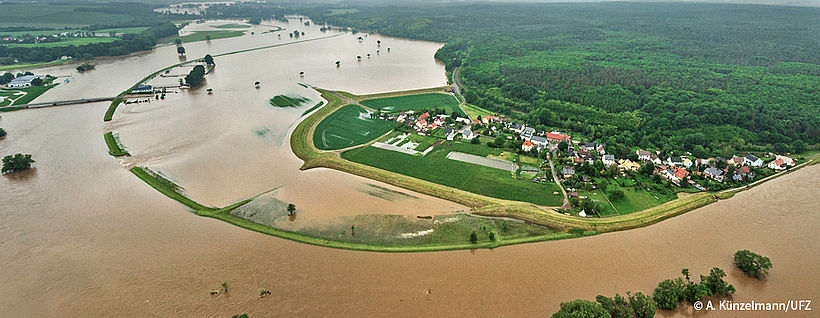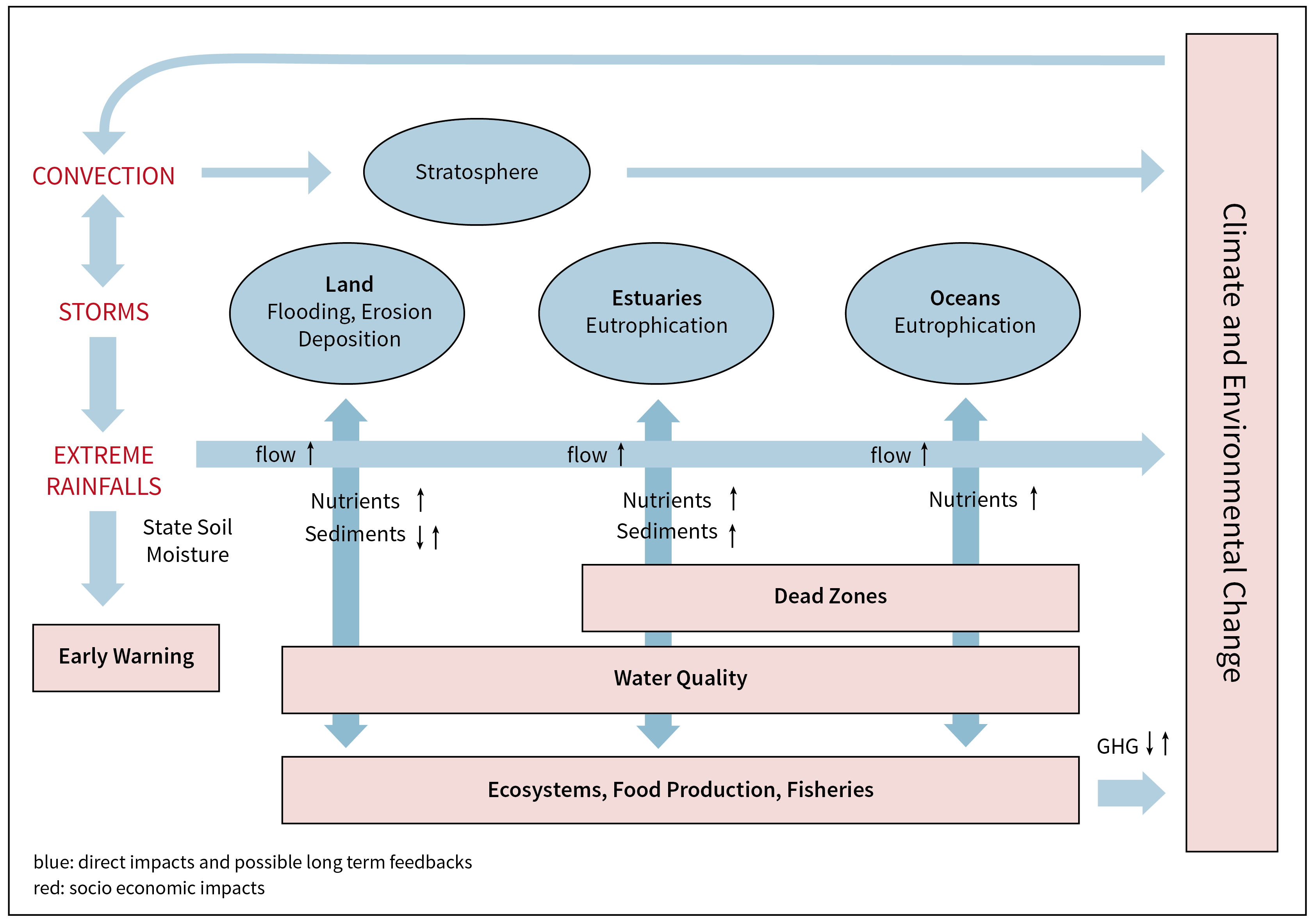
Event Chains
The event chain approach for investigating hydrological extremes aims at a better understanding of the interactions between short-term hydrological events causing large-scale floods and their long-term ecosystem effects. Three overarching hypotheses shall be addressed by MOSES event-driven field campaigns:
(1) High precipitation events can cause severe flooding only by destructive “interference” of cyclones and humidity with atmospheric convection. Flood risk is enhanced in catchments where high precipitation coincides with specific antecedent hydrological conditions such as saturated soil and/or snowmelt.
(2) High precipitation events have a significant impact on landscape evolution, soil properties and matter cycles of terrestrial systems. The propagation of flood events through the catchment and the river system to the coastal zone is an important driver for structuring terrestrial systems.
(3) Floods have a strong potential to affect the nutrient and health status of lakes and coastal environments by a significant and pulse-like mobilization of nutrients, carbon and harmful substances.


